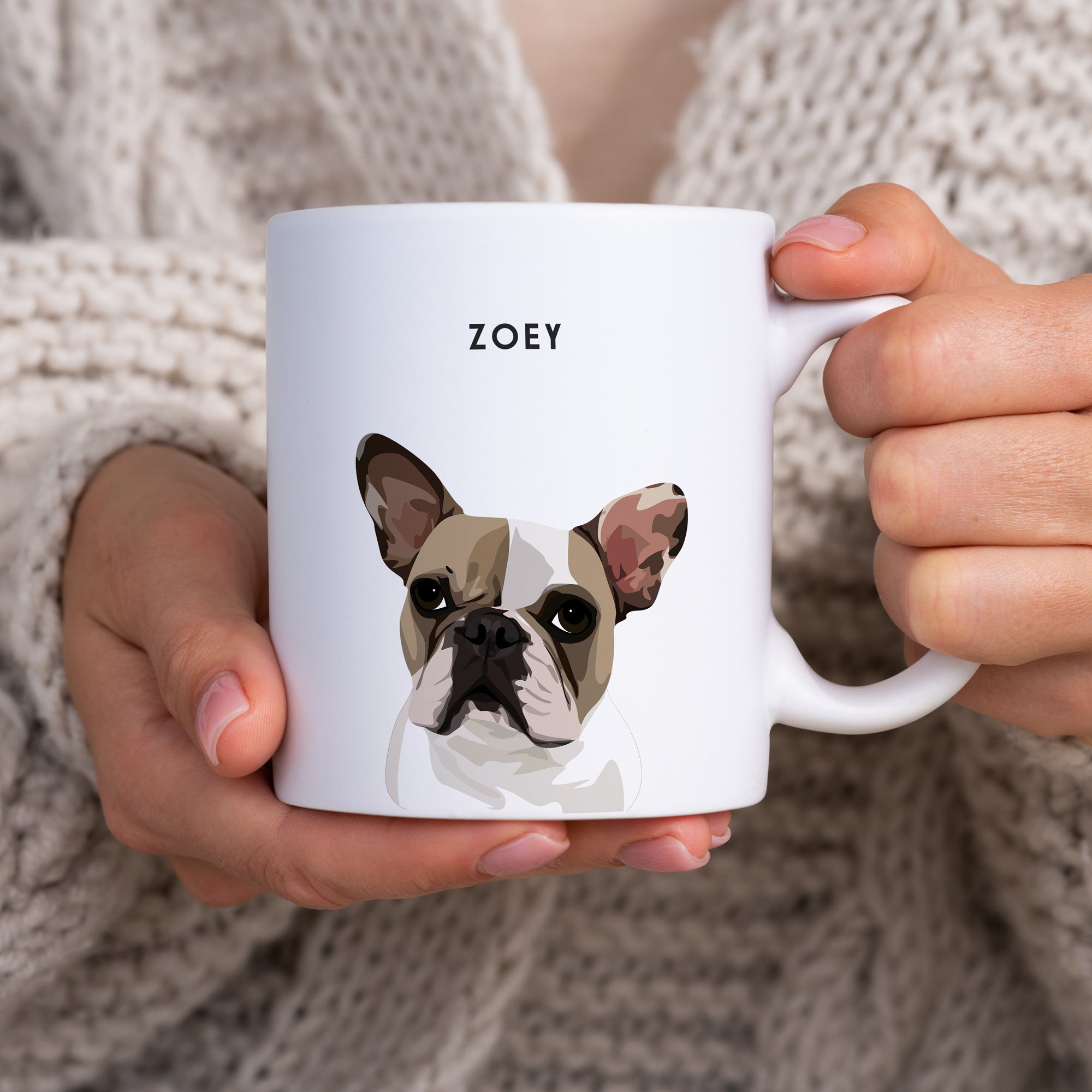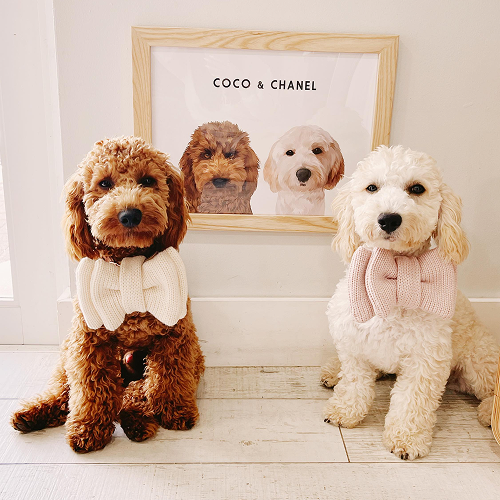Ever been smothered in wet, slobbery dog kisses and thought, "Well, at least it's cleaner than a human smooch, right?" It's a tail as old as time: the belief that our furry friends have mouths that are more pristine than our own. But is there a kernel of truth in this fur-covered myth, or is it just a tall tail? Grab your leashes, fellow dog enthusiasts, because we're about to sniff out the facts and finally answer the question: Are dog mouths cleaner than humans'?
As we paw through the evidence, let's keep one thing in mind: whether they're cleaner or not, those dog kisses come from a place of pure puppy love.
The Myth of the Clean Canine Mouth
Once upon a time, in a land filled with wagging tails and wet noses, a myth was born. The legend goes that our canine companions have mouths so clean, they could practically be used as antiseptics. But where did this tail-wagging tale originate? Was it an old dog's tale passed down through the ages, or perhaps a misinterpretation of a pup's penchant for licking wounds?
Now, let's not bark up the wrong tree here; our dogs aren't exactly donning white coats and practicing dental hygiene. In fact, if Fido had his way, he'd probably trade in his toothbrush for a meaty bone. Imagine, just for a giggle, if your dog was in charge of your dental care—would you trust those paws with your pearly whites? Paws for thought, indeed!
The Science of Slobber
It's time to unleash the facts and get down to the nitty-gritty of what's really lurking in those licks. A dog's mouth is a bustling metropolis of bacteria, both the good boys and the bad. Just like humans, dogs have their own unique bacterial flora frolicking in their gums and teeth, playing a role in their overall health.
But how does this compare to the human mouth, you ask? Well, while we may not have a direct apples-to-apples—or should we say, biscuits-to-biscuits—comparison, the types of bacteria that call our mouths 'home sweet home' do differ. And it's these differences that give us a glimpse into the cleanliness conundrum of canine versus human mouths. Spoiler alert: it's not all about the bacteria count, but the tail of the types that truly matters!
Dogs vs. Humans: The Oral Health Showdown
When it comes to oral health, our four-legged friends aren't just concerned with fresh breath for those up-close-and-personal snuggles. A dog's chompers play a crucial role in their overall well-being, with dental issues potentially leading to more serious health concerns. It's a dog-eat-dog world out there, and staying on top of their oral health is key to keeping their tails wagging.
Let's not bury the bone here—dogs' saliva does have some nifty properties that help maintain their oral ecosystem. But before you get green with envy, remember that humans have their own set of oral health tricks up their sleeve (or rather, in their toothpaste tubes). Unlike our furry pals, we have an array of dental care routines that help keep our smiles shining. So, while our methods may differ, the goal remains the same: keeping those canines—both literal and figurative—in tip-top shape.
The Role of Diet in Dental Cleanliness
Chew on this: a dog's diet is more than just a matter of taste—it's a key ingredient in the recipe for dental health. Those kibble bits and meaty treats aren't just satisfying their tummies; they're also playing a part in scraping away plaque and keeping those gums in peak condition. It's a buffet of benefits for our pooches' pearly whites!
On the other paw, let's take a nibble at the human side of things. Our smorgasbord of snacks and meals can either be allies or adversaries in the battle for oral hygiene. But here's a quirky nugget for you: did you know that some dog-friendly foods can also promote oral health? That's right, sharing a carrot with your furry friend can be a crunch-tastic way to clean those canines. Just remember, moderation is key—too many treats, and you might have a pudgy pup on your hands!
Now, let's fetch some tips for keeping your best friend's bite bright. Maintaining your dog's oral health doesn't have to be a chore—it can be a ball! Regular brushing with dog-specific toothpaste can make a world of difference, and it's a great opportunity for bonding. After all, who doesn't love a little spa day?
But wait, there's more fun to be had! Why not turn dental care into playtime? Dental chew toys and treats are like the squeaky toys of oral hygiene—they keep your pup entertained and their teeth tidy. And for the cherry on top, there's a smorgasbord of dog-safe dental products out there, from water additives to dental sticks, that can help keep your dog's mouth as fresh as a daisy—or should we say, as clean as a bone?
Conclusion
So, what's the verdict? Are dog mouths cleaner than humans'? While our furry friends may not have the minty-fresh breath of a toothpaste commercial, it's clear that cleanliness is more than just a numbers game. It's about the type of bacteria and the care we take to maintain our oral health, whether we're on two legs or four.
Whether you're a human or a hound, a healthy mouth is something to smile about. So, the next time you get a face full of dog kisses, just remember: it's the love that counts, not the bacteria count. And who knows, maybe those dog kisses are just their way of saying, "I woof you!"
FAQs
Can kissing my dog make me sick?
While sharing a smooch with your pooch is one of life's joys, it's best to be cautious. Dogs can carry bacteria that are foreign to our human systems, so it's possible, though not common, for their kisses to pass on an illness. Always keep up with your dog's vaccinations and health checks to ensure both your health and theirs!
How often should I clean my dog's teeth?
For a wag-worthy smile, aim to brush your dog's teeth several times a week. Consistency is key to preventing dental issues and keeping those tail wags coming!
Are there any signs of dental problems I should look out for in my dog?
Keep your eyes peeled for tell-tail signs like bad breath, difficulty eating, or pawing at the mouth. These could be clues that your dog is dealing with a dental dilemma.
What's the best type of chew toy for my dog's dental health?
When it comes to chew toys, look for ones that are designed to promote dental health—those that massage the gums and help reduce plaque and tartar build-up. Always choose the right size and toughness for your dog's breed and chewing habits to ensure safety and effectiveness.
Do dogs need to use mouthwash or can they just stick to water?
While dogs don't need mouthwash in the traditional sense, there are water additives available that can help freshen breath and reduce plaque. Just make sure they're formulated specifically for dogs and approved by your vet!


